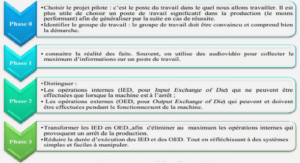WEALTH and MORAL VALUES in Jane Austen’s MANSFIELD PARK
SOCIAL CLASSES
The opening sentence of Jane Austen’s Mansfield Park can indeed be described as the condensation of its themes. One of the themes of the novel is the inequality in wealth. Austen explores clearly the well-tread theme of class distinction which is a major characteristic of the book. This importance of social class pushes the writer to entitle her novel not after a name of person but after an estate. This name estate that the novel is entitled is a relevant element in showing the gap that exists between poor and rich people. The poor people at that time do not have access to these lands because it was reserved at that time only to rich people. It is illustrated through the novel with the Rushworths, the Bertrams and the Crawfords. It is in this way that social rank is determined by incomes and estate. Those who have the opportunity to have a large income or are members of a family which obtain a large income and estate are considered as member of the aristocracy. On the other side, people whose family grants moderate income are seen as member of middle class whereas those whose family has no income represent the lower class. It is this in way that social class is introduced in Mansfield Park. This relative word comes several times in the novel and in many discussions and it is integrated mainly when the discussions are directed to love affairs. From the beginning of her writing Mansfield Park, she makes visible the wide gap which exists in the extent of social classes. The presence of social classes in her novels urges John Odmark to write in his book entitled An Understanding of Jane Austen’s novels that: The relative economic status of each of the heroines and their families is set down in the first few pages of the narrative. In sense and sensibility, pride and prejudice, and in less obvious manner Mansfield Park, it is the heroine‟s economic circumstance which sets the plot in motion. (John Odmark: 1981, 136) This distinction in social rank is introduced in the novel with the introduction of the three sisters with their respective marriage. Through these marriages, she expresses the three possible social classes that she wants to incorporate in her novel: the upper, middle and lower 6 classes. Mary France and her family represent the higher class that she enters by marrying the rich man Thomas Bertram. Her sister Miss Ward married a member of the middle class. The most obvious example of poverty is associated with fanny’s mother who married an illiterate man who is in an extreme poverty. Marriage brutally divided the three sisters into three different classes. The social class is a determinant element in the way that characters are judged. It seems to shape the characters’ personality. Because of the social class that she belongs, fanny is relegated to a second-class in her uncle’s house. Her own cousins who are member of the upper class for the most part of the novel patronize and ignore her. In the same logic, she shares the same experience with her mother since her aunts look down upon her mother because of her rank. This attitude towards fanny’s mother can be illustrated by this assessment of Jane Austen “the circles in which they moved so distinct” (Austen: 1814, 42). In this same logic aunt Norris goes as far as saying that “for people are never respected when they step out of their proper sphere……the nonsense and folly of people‟s stepping out of their rank and trying to appear above themselves, make me think it right to give you a hint.” (Austen: 232) This statement shows that fanny cannot have the same treatment of her cousins because they do not share the same social rank. That is the reason her education is not seen as a real matter in her adoptive family. To reassure themselves, they are persuaded that fanny can never have love affair with his two cousins and their rank, fortune, rights and expectations, will always be different. As a consequence, she is then subject to serial humiliations in order to remind her of her social place. She is made over into an uncompensated servant who performs endless labours as well as running around and fetching things for her indolent aunt without having the wherewithal to complain. Nevertheless, the economic circumstance of fanny the heroine and her family is conducting the plot of the novel. This technique that Austen uses is a way to show the importance of classes at the nineteenth century.
THE YEARNING FOR CLASS ELEVATION
As social class occupies an important role in the Mansfield Park more in the English society of the nineteenth century, social mobility is at the centre of Austen’s novel. She manages to draw a small world specially possessed by a yearning for money and high social standing. It motivated almost many of her characters’ action. In Mansfield Park, the daily occupation of many of its characters is how to manage to reach the superior class. This is to be seen within the context of traditional British class society, with the strict separation between lower, working population on the one hand and the affluent and therefore leisured upper class of the aristocracy on the other. The fact that they are interested in elevating their position is animated by the enjoyment of leisure and pleasure as well as prestige. Hence they are in need to move upwards in the society, especially in the class of the wealthy, who on account of their wealth are entitled and are able to lead a life of leisure and pleasure. The privilege and the happiness that someone can get in elevating his social position urge Mary to think that “A large income is the best recipe for happiness I ever heard of” (Austen: 226). This shows that belonging to the upper class though still highly restrictive, is no longer based extremely on birth or on being descend from the aristocratic family but can also be achieved by the acquisition of wealth and by the purchase of land as exemplified by the rise of successful entrepreneur and businessman since the beginning of the industrial revolution. At this point, the social and historical context in which the desire for advancement and its critique are situated can be identified more clearly. This is a tension between on the one hand, the traditional structure of society in which rank and identity are determined by origin and family on the other, the possibility and indeed the necessity of mobility for the individual, as increasingly brought about by the process of modernisation, frequently motivated by the desire to improve one’s personal situation and social status. The yearning for social mobility explains the obsession of some of Austen’s characters with money. This obsession with money allows Mary Crawford when answering to Edmund question “you intend to be very rich”, her immediate response is “to be sure. Do not you? Do not we all?” (Austen: 226). These series of questions and answers highlight the fact that social rank is as she calls it “true London maxim” (Austen: 90). Hence it is a matter with everybody’s in London to become a rich people in a context of industrial revolution. 10 Through this assertion of Mary, it is revealed that their thoughts are directed to the fact that it is not normal for a Londoner of the time when improvement is at the centre of every matter to remain to an economic level without doing some little progress. It is in this level that this assessment “The most interesting in the world‟, replied her brother-„how to make moneyhow to turn a good income into a better” (Austen: 237) is interesting. Furthermore, through this statement Austen lays an emphasis on the fact that even the desires for the rich people are to improve themselves economically. In this case, the obsession of the English people with social mobility can be illustrated with the case of Pip in The Great Expectation by Charles Dickens. Dickens presents through this novel a character that is animated by the yearning to become a gentleman. This word gentleman is a term specifically used for rich people of nineteenth century England. Furthermore, this idea of social mobility is remarked with the action of Uncle Thomas Bertram in the first chapters of the book with his voyage to Antigua where he has estate. When he is threatened by a bankruptcy, the first reaction of Sir Thomas is to go to Antigua in order to stabilize his income. Antigua is an estate of Sir Thomas where there are slaves. The implication of Sir Thomas in the slave trade is another way to reveal the importance social mobility. As this slave trade is a means for Sir Thomas in this novel to increase his income, it was also a way for the English society to increase its economy. This estate of Antigua has the role to maintain or elevate the privilege life style of Sir Thomas and his family at Mansfield Park. The Antigua connection in Mansfield Park relates closely Austen’s insistence on attitude towards money in this novel. Moreover the fact that William Price enters the navy is another illustrative element used to explain how social mobility is interesting in the dwellers of Mansfield Park and the English society. To the other members of the family, William’s forays overseas are only seen as a means of making at home more comfortable. His principal aim when he chooses this profession is to hold up his family out of the poverty in which they live. In this same context of social position, the phenomenon of social mobility explains also many of the marriages that are exposed in the novel. The context of that moment determines the link between marriage and social mobility because through marriage people can move from one class to another.
MATERIALISTIC MARRIAGE
One of the major themes of the Mansfield Park is that of “money and marriage”. Austen presents us with a commercial view of marriage which the reader is invited to condemn. In the opening chapter, we are immediately made aware of the importance of marriage as a means of positioning oneself in the hierarchy of society. In the context of England of the beginning of the nineteenth century, income was determinant in marriage. This context of the English society of that time urged women to behave in that way. Since they could not support themselves financially, women realised the importance of marrying a man who had inherited some money or who had a profession that did not pay too badly. In marriage of that time love was considered as a backseat and the most privileged thing was money. In Mansfield Park, we see that women’s destiny often depends on how well they marry. The three ward sister illustrates the consequence of a good, a reasonable and a poor match. Throughout the novel, Jane Austen seems to create an ironic awareness of the reality that it is every woman’s duty to do as well as she can as far as marriage is concerned. Marriage is seen by some characters as a business transaction from which both part should benefit. The marriage between Maria Bertram and Mr Rushworth is viewed as advantageous by Sir Thomas. Not only would it guarantee Maria a large income and Rushworths of a beautiful and educated wife but also add respectability and influence to the Bertram name. It is in this context that Maria takes her match with Rushworth as a sense of duty because marrying a man of a good income was seen as a sense of duty in the English society of the nineteenth century. By the way Austen states Being now in her twenty-first year, Maria Bertram was beginning to think of matrimony a duty, and as a marriage with Mr Rushworths would give her the enjoyment of a larger income than her father‟s, as well as ensure her the house in town, which was now a prime object, it become, by the same rule of 14 moral obligation, her evident duty to marry Mr Rushworths if she could. (Austen: 72) A deep analysis of this statement shows that Maria is victim of her society and its established rules. These rules are running away from the ancient English moral codes. Hence love is no longer in the first plan as far as marriage is concerned but it is mainly based on money. In fact Henry’s view on marriage, expresses that it is the only way for a woman to acquire “happiness, comfort, honour and dignity in the world” (Austen: 301). All these achievements in their social status are something that they can get only by marring a man of their superior classes. Just as her mother gained prestige by marring Sir Thomas and becoming lady Bertram, Maria intends becoming Rushworth’s wife in order to achieve fortune and consequence. Like her mother, Maria marries for money and social prestige while she neither loves nor respects Rushworth. In rejecting this kind of marriage, Edmund thinks that “if this man had not twelve thousand a year, he would be very a very stupid fellow” (Austen: 73). This means that she loves her husband only for his money. Even if he is a boring man, she can bear it in him because her only interest in him is money. It is clear that she has no feeling for him; her chief concern is not love but income, security and social status. This feeling of marriage as a transaction is more exposed with the expression of Mary Crawford that she judges as a “vulgar phrase”, “she has got her pennyworth for her penny” (Austen: 387). For her there is a commercial matter between Mr and Mrs Rushworths: he has bought her with her money and Maria has bought her or at least her position with her body. Hence this expression explains the close relation between money and sex. The establishment of commercial marriage as a social norm is remarked with the astonishment of Uncle Thomas when fanny rejects Henry Crawford’s proposal for marriage. For him fanny should accept him even if she doesn’t love him. This match it is a way for her to help her family to be out of poverty since it is well known that Henry is a rich man. In order to make her aware of this, he tries to bully her into accepting Henry Crawford’s engagement. He expects her niece to act as he has acted with the match of Maria by taking into consideration that this marriage is “the advantage or disadvantage of her family, of her parents, of her brothers and sisters” (Austen: 318). What he has done with Maria’s marriage is that he is motivated by “sacrificed the right of the expedient, and been governed by motives of selfishness and worldly wisdom” (Austen: 446). He expects these same motives from fanny’s marriage. Throughout the novel, Austen manages to present most of her characters 15 activated, like Sir Thomas by these motives in the matter of marriage. That is the case of Mary Crawford. Mary seduces Tom who is the legitimate heir of Mansfield Park at the time when she feels real love to Edmund. She tries to like her because of the money that he will earn. Her real interest is money even if she belongs to the rich class.
INTRODUCTION |






